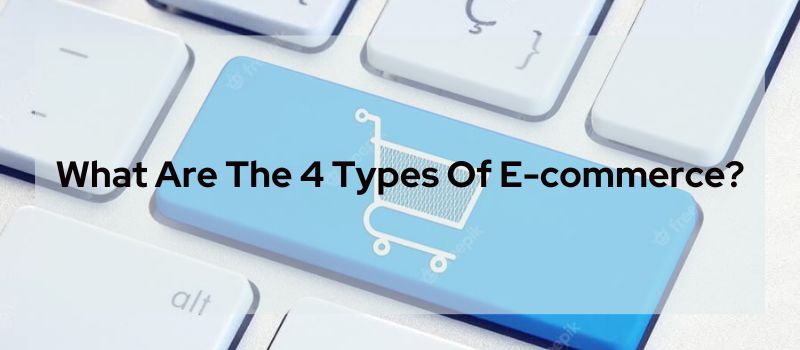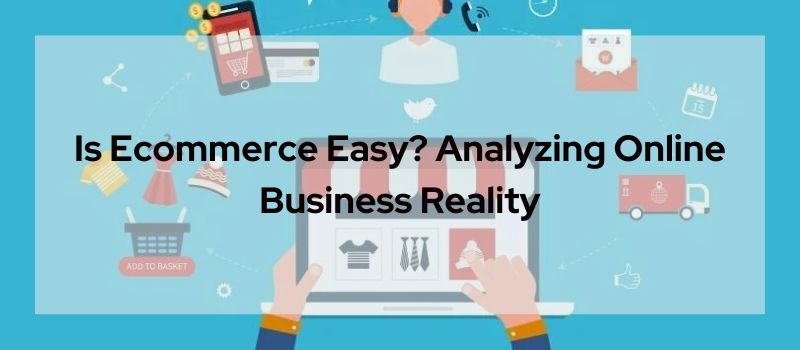Virtual storefronts in the fascinating world of e-commerce hold infinite possibilities. My goal as an e-commerce blogger is to help you capitalize on these opportunities.
Prepare to be guided through the online world by an experienced e-commerce adviser. This essay will go to the heart of e-commerce websites, where ideas become products and businesses thrive.
Wait, that’s just the start. Let’s examine maintenance, an often-overlooked expense. I’ll explain why knowing these charges is vital to your business’s long-term performance as an e-commerce consultant.
Contents
- 1 How much does it cost to maintain an eCommerce website?
- 2 FAQ’s
- 3 Conclusion
How much does it cost to maintain an eCommerce website?

Maintenance costs for an eCommerce site can vary a lot based on things like the site’s complexity, the size of the product catalogue, the features that are needed, hosting costs, ongoing updates, security measures, and any marketing efforts that might be made.
“On average, upkeep costs can be anywhere from a few hundred to several thousand dollars per month.”
Pricing will greatly affect your online store, so prepare to handle its complexity. My expertise as an e-commerce consultant will equip you to succeed in today’s market.
E-commerce aficionados, are you ready to showcase your store’s capabilities? Let me, the e-commerce expert, lead you on this wonderful voyage. Write a story about online business success, expansion, and profit.
Factors Affecting eCommerce Website Maintenance Costs
Maintaining the cost of an eCommerce website involves various factors that contribute to the overall expenses. Understanding these cost drivers is crucial for efficient budget management and sustainable growth.
Here’s a closer look at the key factors affecting eCommerce website maintenance costs:
Technical Infrastructure
- Hosting Expenses: Your choice of hosting service greatly impacts the cost. Shared hosting is more affordable but might lack in performance and security compared to dedicated or cloud hosting, which can be pricier.
- Domain Renewal Fees: The domain name is your online identity. Annual renewal fees vary based on the domain extension and registrar.
- SSL Certificate Costs: Ensuring secure transactions and data protection requires an SSL certificate. Costs can vary based on the level of encryption and validation.
Platform and Software
- eCommerce Platform Subscription Charges: The platform you choose for your online store often comes with a subscription fee. Factors like features, scalability, and support influence these costs.
- Third-party Plugin or Extension Costs: Integrating third-party tools can enhance functionality but might involve additional costs for licenses or subscriptions.
- Content Management System (CMS) Fees: CMS platforms enable content updates. Costs depend on the CMS type – open-source options are free, while proprietary systems may involve licensing fees.
Design and Development
- Theme/Template Expenses: Whether you choose with pre-designed themes or build your own templates from scratch, your costs will change. In most cases, the initial investment for a custom design will be greater.
- Customization Charges: Tailoring your website’s design and features to align with your brand can lead to additional expenses.
- Mobile Responsiveness Costs: Considering the prevalence of mobile surfing, it is possible that additional development costs would be incurred to make your website responsive on a variety of devices.
Security and Compliance
- Payment Gateway Fees: In order to accept payments online, you will need to integrate payment gateways, which typically demands payment of transaction fees or a percentage of gross sales.
- Security Software Costs: Investing in security solutions is required in order to safeguard client data and forestall the occurrence of cyberattacks.
- Compliance Audit Investments: It may be necessary to bring in outside expertise and incur additional money for periodic audits to ensure compliance with industry standards or regulations.
In summary, understanding these factors gives you a comprehensive view of the expenses involved in maintaining an eCommerce website. Each aspect contributes to the overall cost structure and requires careful consideration when planning your budget.
Ongoing Maintenance Costs

As the popularity of an eCommerce website grows, regular maintenance becomes necessary to ensure the website’s continued performance and to ensure a seamless shopping experience for customers. The individual facets of continuing maintenance are broken down into the following categories and explained in more detail:
Content Updates
- Product Updates: Your inventory will always be up to date and correct if the product information, prices, and availability are updated on a regular basis.
- Blog Posts or Articles: Customers can be engaged more effectively and search engine optimisation can be improved by regularly publishing fresh material in the form of blogs or articles.
- Media Uploads: The appeal of product listings and the website as a whole can be improved by the addition of photographs, videos, and other types of media assets.
Technical Support
- Hiring Developers or Support Team: If you want to ensure timely troubleshooting and assistance for technological issues, hiring developers or a support team is a good option.
- Troubleshooting Costs: Finding and fixing problems with websites, often known as bugs or malfunctions, may require the assistance of third-party support or specific software.
- Bug Fixes and Patches: Continuous monitoring and the elimination of software flaws or vulnerabilities call for the allocation of development resources.
SEO and Marketing
- Search Engine Optimisation Expenses: Making an investment in SEO methods helps boost the visibility of your website in the results of search engines, which in turn attracts organic visitors.
- Pay-Per-Click Advertising Budget: The execution of focused pay-per-click (PPC) campaigns can immediately increase visitors to particular product pages.
- Social Media Management Fees: There is a cost associated with managing social media accounts and running advertising campaigns on social media sites like as Facebook and Instagram.
Ongoing maintenance ensures that your eCommerce website remains competitive, secure, and up-to-date. Regularly updating content, addressing technical issues, and implementing effective marketing strategies contribute to sustained success.
eCommerce Expert
An eCommerce expert is a seasoned professional with in-depth knowledge and experience in the field of electronic commerce. These specialists possess a comprehensive understanding of the various elements involved in setting up, managing, and growing an online store. From technical aspects to marketing strategies, eCommerce experts offer valuable insights and guidance to businesses aiming to establish a strong online presence.
Role of an eCommerce Expert
Ecommerce experts play a pivotal role in several areas:
- Platform Selection: They lead businesses step-by-step through the process of selecting the most suitable eCommerce platform to match the specific demands and goals of each individual company.
- Design and Development: The design and development process is directed by eCommerce professionals, which results in user interfaces that are intuitive and welcoming to users, and navigation that is straightforward.
- Product Presentation: They offer advice on how to present things in the most appealing way, how to optimize images in the most effective way, and how to write fascinating product descriptions.
- Marketing Strategies: These industry professionals adjust marketing techniques to the environment of eCommerce, incorporating elements such as search engine optimization (SEO), social media, email campaigns, and more.
- Conversion Optimization: They optimize websites by studying the patterns of user behavior and trends in order to increase conversion rates and maintain existing customer relationships.
- Technology Integration: Experts in eCommerce make it easier to integrate a variety of technology, including inventory management systems, payment gateways, and analytics tools.
Why Consult an eCommerce Expert?
Given the complexities of the best eCommerce ecosystem, seeking advice from an expert can yield numerous benefits:
- Efficient Setup: The process of setup is streamlined by experts, which saves time and reduces the likelihood of errors occurring.
- Effective Growth Strategies: Their insights help firms implement strategies that promote growth and improve income, which is a win-win for everyone involved.
- Stay Updated: The field of eCommerce is constantly evolving, and industry professionals will keep you up to date on the most recent trends and technologies.
- Problem Solving: When difficulties develop, professionals propose solutions that reduce the amount of disruption caused.
- Maximize ROI: Their direction enables you to make well-informed decisions, which in turn increases your return on investment.
In a competitive online market, having an eCommerce expert as part of your team can be a game-changer, ensuring your business is well-positioned for success.
eCommerce Consultant
An eCommerce consultant is a professional who provides specialized advice and guidance to businesses operating in the online retail space. These consultants bring a wealth of industry knowledge and expertise to help eCommerce businesses overcome challenges, capitalize on opportunities, and achieve their goals more effectively.
Roles and Responsibilities
Ecommerce consultants offer a range of services, including:
- Business Strategy Development: Consultants conduct market research to identify trends, target audiences, and potential competitors.
- Market Analysis: Research into the market is carried out by consultants in order to detect trends, target markets, and possible competitors.
- Platform and Technology Recommendations: They analyse the client’s requirements and make recommendations for appropriate eCommerce platforms, tools, and technology.
- Marketing and SEO Guidance: The insights that consultants provide on efficient marketing approaches and SEO strategies are invaluable.
- Conversion Rate Optimization: They examine user behaviour and provide recommendations for improvements in an effort to boost conversion rates.
- Operational Efficiency: E-commerce experts help streamline procedures, which results in increased productivity and decreased expenses.
Benefits of Hiring an eCommerce Consultant
Engaging an eCommerce consultant can offer several advantages:
- Expertise: E-commerce experts help streamline procedures, which results in increased productivity and decreased expenses.
- Objective Insights: Due to the fact that they are third parties, the opinions and insights they offer are unbiased and objective.
- Custom Solutions: The specific requirements and objectives of the company are taken into consideration while developing strategies by consultants.
- Time and Cost Savings: Their knowledge can hasten the process of decision-making and help avoid errors.
- Scalability and Growth: Consultants contribute to the construction of business plans that may accommodate the growth and expansion of a company.
- Stay Competitive: You can stay competitive in a market that is constantly shifting thanks to the methods that consultants apply on your behalf.
Expert Insights: Recommendations for Cost-effective Maintenance
Efficiently maintaining an eCommerce website is essential to ensure its longevity, functionality, and positive user experience. Expert recommendations focus on strategies that balance effectiveness with budget considerations.
Regular Monitoring and Updates
Regular monitoring and updates form the foundation of an effective maintenance strategy. Timely software updates, security patches, and performance optimization are crucial to prevent issues from escalating.
A proactive approach minimizes the risk of costly emergency fixes and enhances website security. Constant vigilance allows businesses to identify potential vulnerabilities and address them promptly.
Automated monitoring tools can assist in tracking website performance, uptime, and security breaches. By staying ahead of potential problems, you not only save costs but also maintain customer trust and satisfaction.
Efficient Resource Allocation
Prioritizing tasks that affect user experience and income is efficient resource allocation. Focusing on important tasks prevents wasteful spending.
Automating repetitious processes reduces manual labour costs. Content development and technical assistance can be outsourced to save money.
It lets you employ knowledge without hiring a whole staff, especially for non-core business responsibilities.
Choosing the Right eCommerce Platform
Choosing the appropriate eCommerce platform can greatly impact maintenance expenses. Choose a platform that fits your business, development ambitions, and budget. Scalability, flexibility, and licencing fees matter.
Open-source platforms are free and supported by a large development community, making them cost-effective. Private platforms may cost more but offer more features tailored to your needs.
Outsourcing vs. In-house Maintenance
The complexity and resource availability of your organization determine whether to outsource or insource maintenance. While in-house maintenance provides instant control, it can increase labour expenses.
However, outsourcing lets you use specialized expertise without full-time labour costs.
Budget, maintenance complexity, and control level should be considered. Outsourcing technical, content, and digital marketing tasks can save money and improve skills.
Case Studies: Real-world Examples
Real-world case studies provide tangible insights into how businesses approach eCommerce maintenance strategies.
Successful eCommerce businesses and their maintenance strategies
Case 1: Fashion Haven
Whether you should outsource maintenance or do it yourself relies on how complicated your business is and how many resources you have. In-house care gives you control right away, but it can cause labour costs to go up.
On the other hand, hiring lets you use specialized knowledge without having to pay for full-time staff.
Think about your budget, how hard the maintenance jobs are, and how much control you want. By outsourcing technical tasks, content creation, or digital marketing, you can save money and take advantage of the skills of professionals.
Case 2: Gadget Galaxy
Gadget Galaxy is a store that sells gadgets. For control, they put a lot of focus on doing their own repairs. They chose an open-source tool so that they wouldn’t have to pay licensing fees. Their decisions about how to use their resources are based on how well they can handle their stock and take orders.
They make sure the website is secure without spending a lot of money on updates and fixes.
FAQ’s
Q1: How much does it cost to set up an e-commerce website?
The cost of establishing an online storefront can vary widely depending on its level of complexity, as well as its layout and feature set. In general, it can vary anywhere from a few hundred dollars to several thousand dollars, and that price includes domain registration, hosting, design, and initial setup.
Q2: Why does it cost so much to maintain an e-commerce website?
Hosting, upgrades, security, and support are just some of the recurring costs associated with maintaining an e-commerce website. The high data volume and the necessary level of security both contribute to the costs.
Q3: How do you maintain an eCommerce website?
I make sure that there are regular upgrades, security fixes, and product additions when it comes to e-commerce maintenance. It is also quite important to monitor traffic, work on improving performance, and provide fast assistance to customers.
Q4: How much does it cost to build a Shopify website?
The cost of developing a website with Shopify is determined by the level of customization, the theme, and the apps used. It begins at a base price of $1,000 and can go much more depending on the sophistication of its features and design.
Conclusion
You did well finding your e-commerce success drivers. To expand and become affluent, you must understand cost factors. E-commerce blog posts should give you actionable suggestions to improve your online business, not just information.
Learn the lesson? The key to online success is preventative maintenance. Hire an e-commerce consultant before problems arise to avoid them and keep your firm successful.
Don’t stop there. In e-commerce, personalized solutions are crucial, and I’m here. I can give you tailored advice to help you reach your goals due to my significant experience.
Let’s go on this fascinating journey, e-commerce aficionados! I’ll be your go-to e-commerce expert to help you overcome challenges and grow.
We must act immediately. Don’t risk your internet store. With the support of an experienced electronic commerce professional, you may dominate your sector, achieve exceptional success, and leave a trail of satisfied customers and successful businesses.
Read more: Is Ecommerce Easy? Analyzing Online Business Reality



